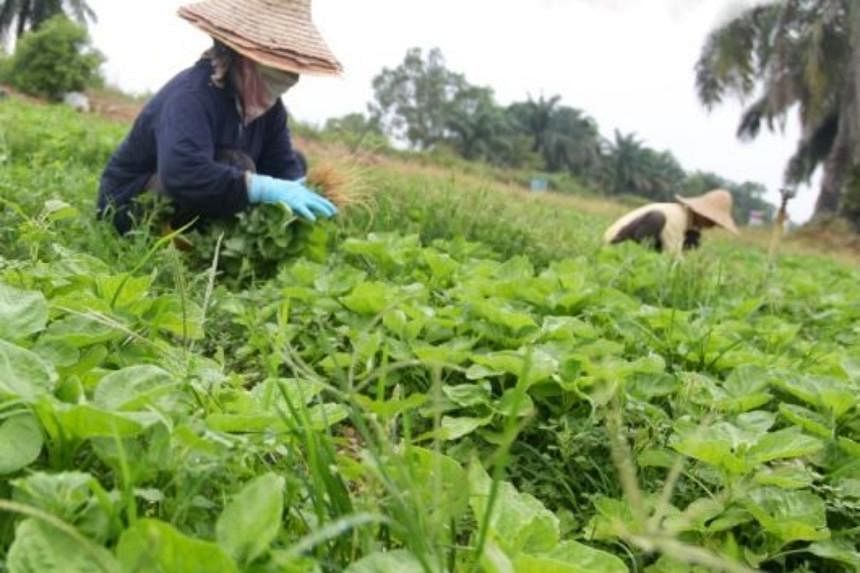JOHOR BAHRU - Continuous and heavy rains in Malaysia coupled with the steep increase in production costs have significantly impacted the yields of fruits and vegetables around the country, say farmers.
They are forecasting that Cameron Highlands, which is one of the top areas for vegetable production, will see a drop of 20 per cent to 30 per cent in yield. This could result in an increase in the prices of vegetables.
Cameron Highlands Vegetable Farmers Organisation president Datuk Chai Kok Lim pointed out that the highlands had been seeing frequent rain that affected the growth of vegetables.
"If it rains once or twice a week, it's still okay. But it has been raining almost daily in the afternoon and sometimes in the morning.
"Among those that will be impacted are iceberg lettuce, Chinese cabbage and most leafy vegetables," he said, adding that erratic temperatures would also cause the vegetables to be spoiled.
"We are constantly monitoring the situation and hope that the rain will only last for another two weeks," he said, adding that he expected prices to go up in tandem.
In Johor, Malaysia Federation of Vegetable Farmers Association president Lim Ser Kwee said the country could risk facing a food security problem should heavy rainfall continue.
"Hot weather does not really impact our production as we can still water the plants in the absence of rain.
"The biggest problem is the rainy season that is occurring more often these days. We have been getting more rain over the past two years and often, it's heavy and unpredictable. Previously, we can estimate and prepare for rainy seasons but we are unable to do that anymore.
"As a result, the production of vegetables in the country has dropped by at least 30 per cent this year and this has also affected the price of greens in the market," he said in an interview.
Among the vegetables that have seen price hikes due to the weather are chillies, eggplants, lady's fingers, tomatoes and long beans.
Hoping that the government could provide subsidies to help farmers increase their production, Mr Lim also called for more research to be conducted into ways to tackle problems arising from the unpredictable weather.
"The subsidies will help us temporarily but in the long run, the Agriculture and Food Industries Ministry should look into conducting research under the Malaysian Agricultural Research and Development Institute (Mardi) to help us come up with long-term solutions," he said.
The increase in production costs, including fertilisers and labour, had also compounded problems for the farmers, added Mr Lim.
Johor Fruit Farmer Association chairman Francis Hong Sun Ho said about 30 per cent of fruit planters nationwide had decided to leave the business after suffering major losses in the past two years.
"The increase in rainfall started about two years ago when we were also being burdened by the Covid-19 pandemic.
"As a result, many farmers were unable to cope as they had to bear higher costs for lower yields. Some decided to do away with the fruit business for other options, such as producing palm oil. This has further affected fruit production in the country.
"At the same time, we are unable to increase prices too much to cover the extra costs as middlemen are not keen," he said, adding that local fruit farmers were also facing competition from foreign producers.
"For example, the heavy rain has reduced our local production of bananas, causing a shortage. So, we are now importing more bananas from countries such as Vietnam that are able to produce the fruit at a lower cost," said Mr Hong.
With imported bananas being sold at cheaper prices, consumers were not keen to buy more expensive local bananas, he said, urging the government to look into controlling imports.
Another way the government could help farmers, he added, was to provide greenhouses to grow crops in a controlled environment.
"However, this method will only work for smaller fruit trees such as rock melon and not durian or jackfruit," he said.
Johor Nursery Association vice-president Darren Tan said the floral industry was worried about floods, adding that the previous inundation that hit Muar two years affected its production. THE STAR/ASIA NEWS NETWORK

